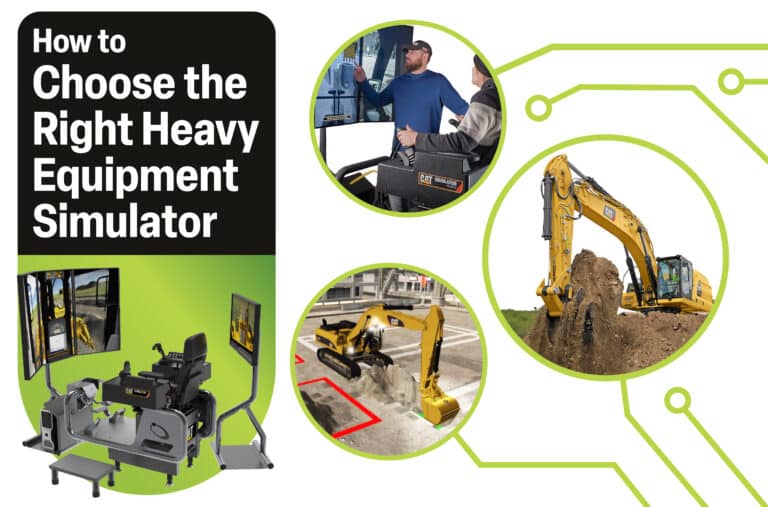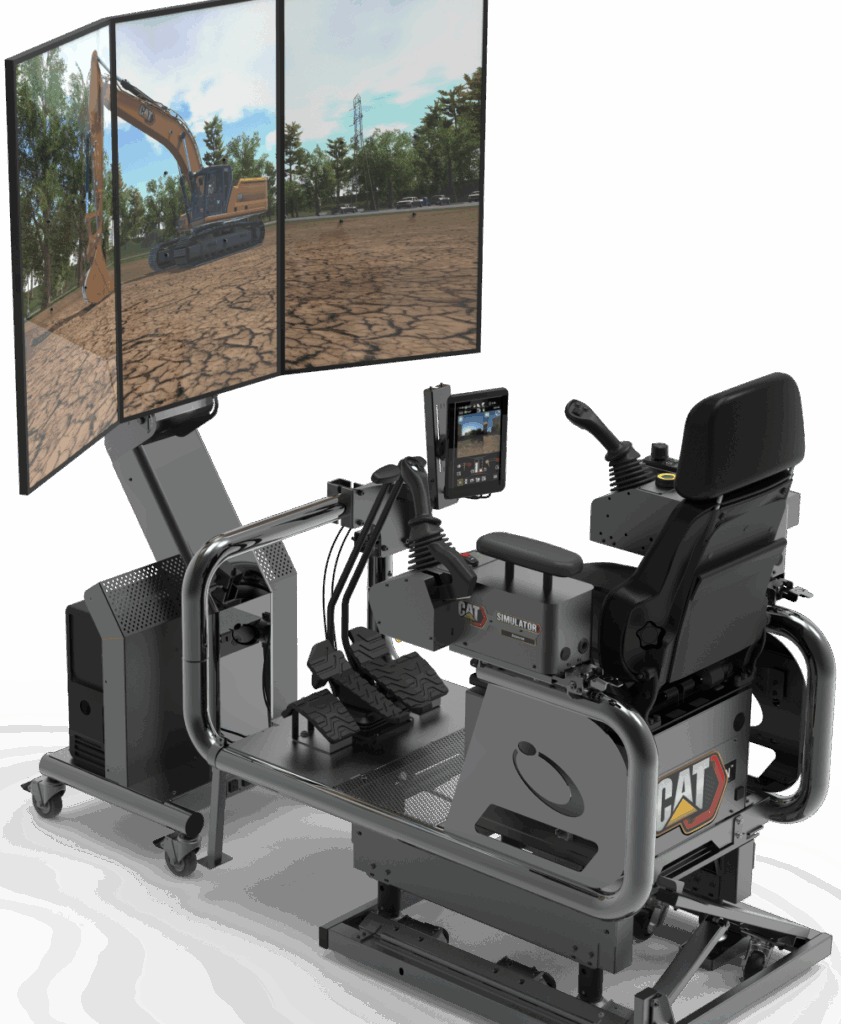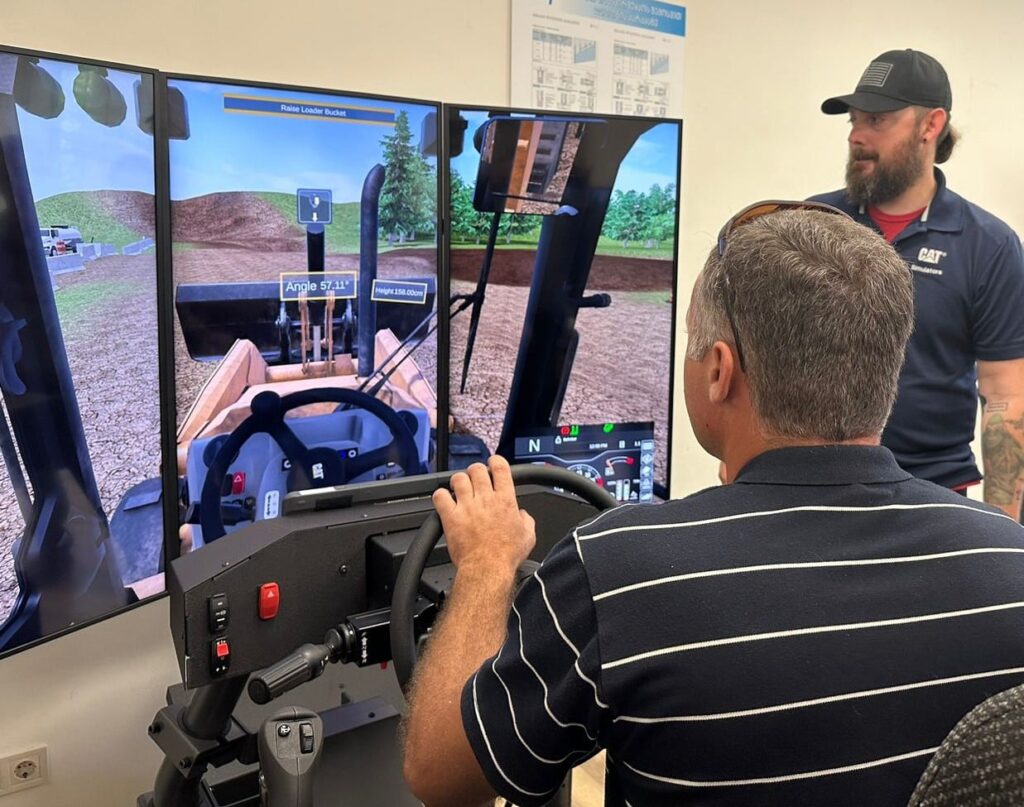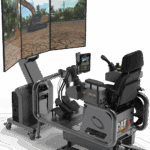
- Define Training Goals
Before selecting a simulator, clearly define your organization’s training objectives. Understand what specific skills and scenarios are needed to train operators, such as excavating a trench, dozing a highway ramp, or driving at a mine site.
- Compatibility with Equipment Types
Ensure that the simulator supports the types of heavy equipment your operators will be using. Look for simulators with authentic machine controls. Learners can transition to the field faster when the simulator controls match the controls in the real machine. Often one simulator can train a family of machine models, giving you more bang for your buck.
- Realistic Physics
Find simulators that offer high-quality, realistic physics responses. Realism is crucial for effective training and engagement. The simulated machine’s physics should respond/react realistically to the environment, maneuvers and terrain interaction.
- Varied Training Scenarios
Choose a simulator that provides a wide range of training scenarios, including different applications and job site challenges. Training exercises should be developed with operator experts to ensure the most realistic training scenarios are presented. Learners exposed to the same applications they will experience on the actual jobsite are better prepared operators. In addition, learners will better understand the importance of situational awareness when they experience a mishap while training in the safety of a virtual environment.
- Performance Analytics
Look for simulators that provide detailed performance analytics and feedback. Operators should receive constructive feedback on their performance, allowing them to improve their skills. Simulators that feature expert metrics and benchmarks allow learners to compare skill levels. Learners can better understand where they need to improve their skills or where they already excel if the simulator records and reports the results of training sessions.
- Support & Updates
Choose a simulator from a reputable company that offers ongoing support and regular software updates. This ensures that the simulator remains up to date and functional over time. Easy-to-access software updates and knowledgeable people who can answer questions and help when needed are extremely important to the success of your organization’s training program.
- Training Curriculum
Look for a simulator that offers a companion curriculum. Hands-on simulator training is enhanced when combined with theoretical training in the form of lessons, quizzes, videos and other content. Learners can understand the “why” behind the applications and become well-rounded operators in the field.
Remember that the quality of your organization’s heavy equipment operator training can have a significant impact on safety, efficiency and productivity. Taking the time to choose the right simulator provider will ultimately benefit your organization’s bottom line.




